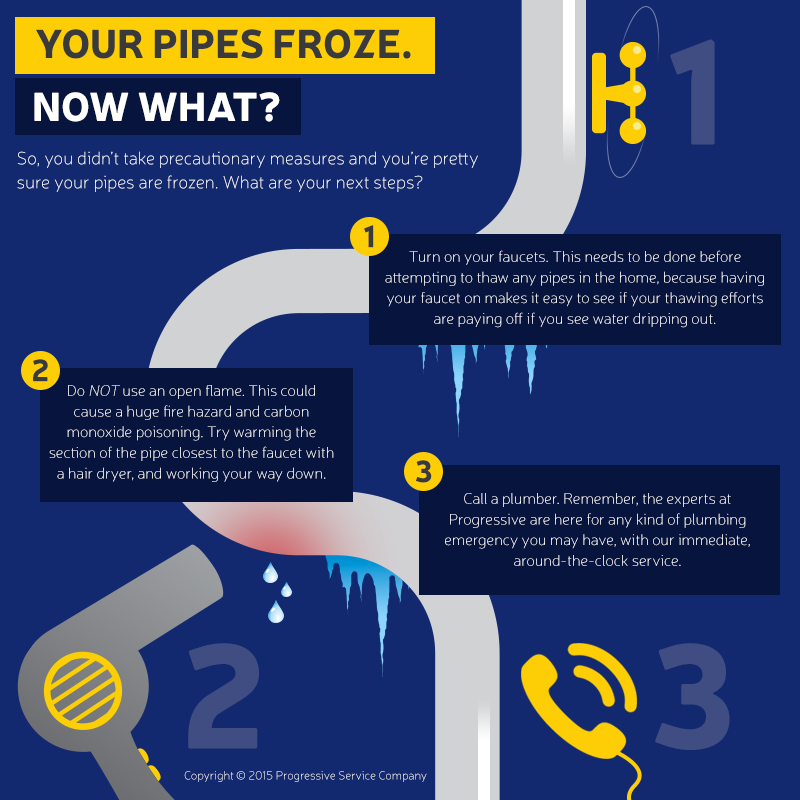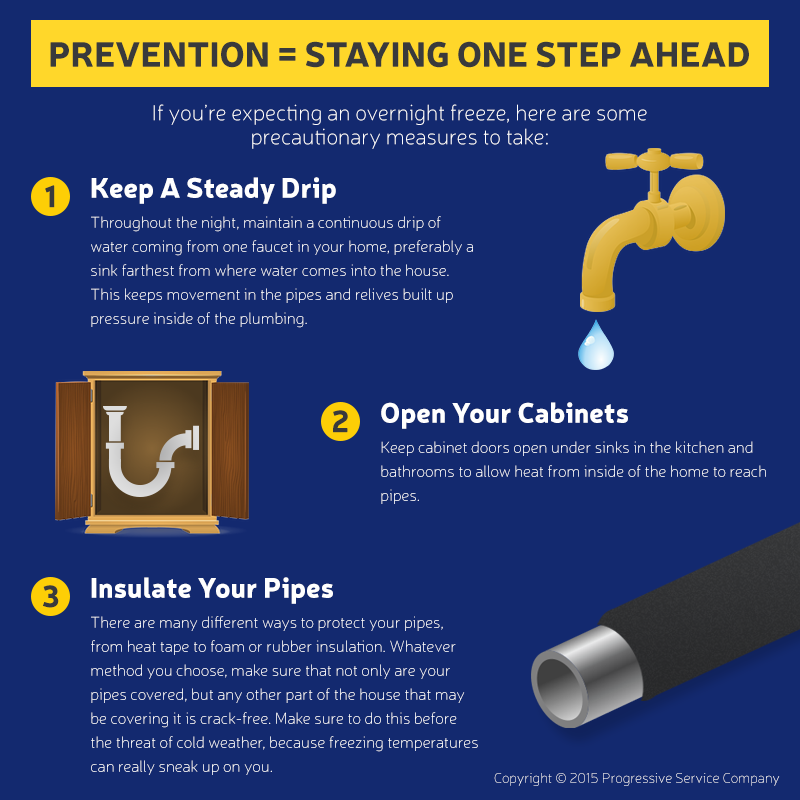Progressive Service Company always encourages our customers to take a proactive approach to maintaining their homes as well as embracing value adding upgrades or improvements. Each month we try to address one of these topics through our blog posts.
This February, in light of the severe freezes that NC has endured, we would like to focus on tips and best practices for your home’s plumbing system to make certain that you are properly maintaining one of your home’s most vital, but also potentially damaging, internal systems. A large number of the problems that occur in a home are related to plumbing issues, and many times these issues could be avoided with proper habits and routine maintenance. Below we have listed a basic outline that is designed to help you create proper habits for maintaining your home and preventing issues, where possible, from occurring.
Monthly:
- Run faucets and flush toilets in any bathrooms that are not used on a regular basis.
- Listen to your home’s plumbing system: often times we can hear issues that arise in our home’s plumbing system even before we can see them. A clang that occurs when a water-based appliance shuts off, running toilets, and whining shower heads or faucets can all represent potential issues. Be sure to identify the concern and contact a professional before a small fix becomes a major issue.
- Check your washing machine supply lines: a bulge or balloon in a washing machine line can indicate that you have too high of water pressure coming into your home. This could result in extensive water damage and should be addressed by a professional immediately.
Bi-Annual:
- If your water heater is less than two years old, you can help to extend the life of the product by safely draining it twice per year. Doing so will help to remove solids that have settled in the bottom of the tank and help prevent build ups that can damage the heater and reduce efficiency. If your unit is older than two years it may not be a good idea to do so as damage may have already occurred and draining could reveal issues sooner. For more information or any questions feel free to give us a call and we can discuss them with you.
- Cover outdoor spigots in the winter: If you live in an area that is susceptible to cold freezes, cover your spigots with an insulation cover and turn off water to them where possible.
- Inspect the exterior of your home: Walk around your home and look for signs of potential issues. Proper drainage around your home is necessary to ensure that you do not have rain water that is being diverted and settling back near your home’s foundations. If you see areas that are showing signs of potential issues, call a professional or repair the issue to prevent future damage. Be sure to check your crawlspace to make sure that you do not have any current moisture issues already.
Annual:
- Have a professional check your Pressure Relief Valve or PRV: Changes in city water pressure due to new developments nearby or new construction can cause major issues for your home. Most home appliances are only rated to withstand 80 psi of water pressure. If your home has water pressure that is higher than 80 psi, you are putting your home in danger of flooding by not installing a proper PRV to regulate the pressure. Signs of high water pressure are hissing shower heads or faucets and/or bulging washing machine supply lines. If you see or hear any of these signs take immediate action to repair these issues.
- If you do not have a water purification system it is a good idea to have your water tested to ensure that you are providing your family with the best possible water quality. Your local water system can be susceptible to changes due to natural environmental or man-made issues that can occur many times throughout the year. It is a good idea to make sure that you know what quality of water that your family is consuming and bathing in. For a free water quality test, call us today!
Remember, this is just a starting guideline for you to begin to create your best practice habits for maintaining your home. Feel free to add to list as you customize it to fit your home’s particular needs. Additionally, if you have other questions or concerns that we have not addressed here, please feel free to give us a call at (877) 325-0180 or send us an email at info@callprogressive.com and we are happy to have an industry expert help to address your concerns!


